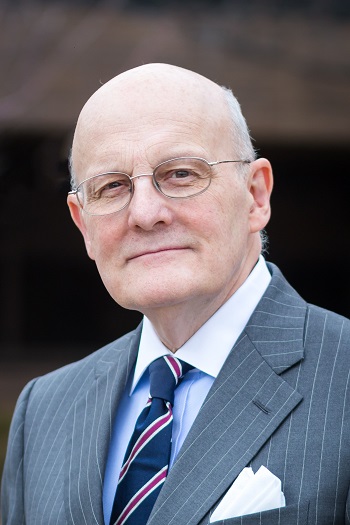By Professor Christopher P. Woehrle, J.D., LL.M
All of your diligence and creativity in making the case for support to a long-time supporter yields a “Yes!” Now, the last mile of the race is getting to “yes” a few more times!!! An advisor in the supporter’s planning council will be asked to greenlight the gift after speaking candidly and confidentially.
Sometimes donors have “more will than wallet” and enlist the advisor to be the bearer of the disappointing news of either no gift, a smaller gift or a deferred and revocable gift. Let’s examine the vast majority of cases where the donor genuinely wants to make a significant and irrevocable gift.
Rarely will the development professional have the entire picture of the donor’s asset allocations and liquidity. One of the advisors will assess the gift’s affordability. While the donor may have significant appreciated assets, those may need to be held as part of a plan created to last decades. There may be children or grandchildren needing economic outpatient care.
Many gift plans attract less advisor scrutiny because of the relatively smaller amounts at stake and their simplicity. The CPA might verify your calculations and assess the likelihood of using all of the deduction in a particular year or multiple years. Reduction in assets under management might be acceptable to the financial advisor who would rather not risk alienating a philanthropic client. Rarely will a gift annuity agreement be reviewed by a lawyer (though the charity should document in writing that the donor was advised to do so).
From my perspective, the gift that seems to trigger the greatest friction and unpleasantness is the charitable remainder trust.
Part of the tension arises from the ability to maintain revocability of the beneficiary designation notwithstanding the irrevocability of the funds in the trust. Rev. Rul. 76-8 permits the grantor of an inter vivos remainder trust to retain a power exercisable either during lifetime or at death to substitute the initially designated qualified charity (yours) with another. The client’s lawyer will draft the trust “defensively” to provide the donor maximum flexibility should she sour on the charity or be attracted to different ones. Unless the client is directing her lawyer to make the beneficiary designation absolute, the charity will be without certainty of result.
Ideally, the development professional has informed the donor of the importance of the irrevocability of the designation before discussions with advisors. Failing to raise the issue almost invariably leads to a revocable designation. ■

Christopher P. Woehrle is professor and chair of the tax & estate planning department at the College for Financial Planning in Centennial, Colorado. As one of Sharpe Group’s technical advisors, Chris is a frequent contributor to Sharpe Insights and authors Sharpe Group blogs.
Reach Financial and Estate Planning Advisors With a Targeted Digital Newsletter
 The Advisor is published six times a year, every other month, and includes relevant IRS rulings and court cases, tables and charts and the “Philanthropy Puzzler.” Organizations can brand The Advisor with their logo and contact information, providing advisors with time and valuable information to share with their clients who have charitable intent.
The Advisor is published six times a year, every other month, and includes relevant IRS rulings and court cases, tables and charts and the “Philanthropy Puzzler.” Organizations can brand The Advisor with their logo and contact information, providing advisors with time and valuable information to share with their clients who have charitable intent.
For more information and to request a demo, click here.


